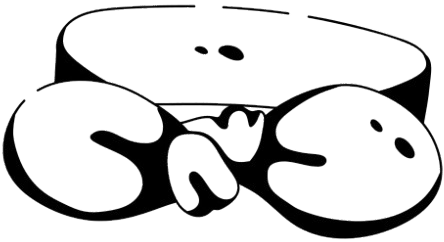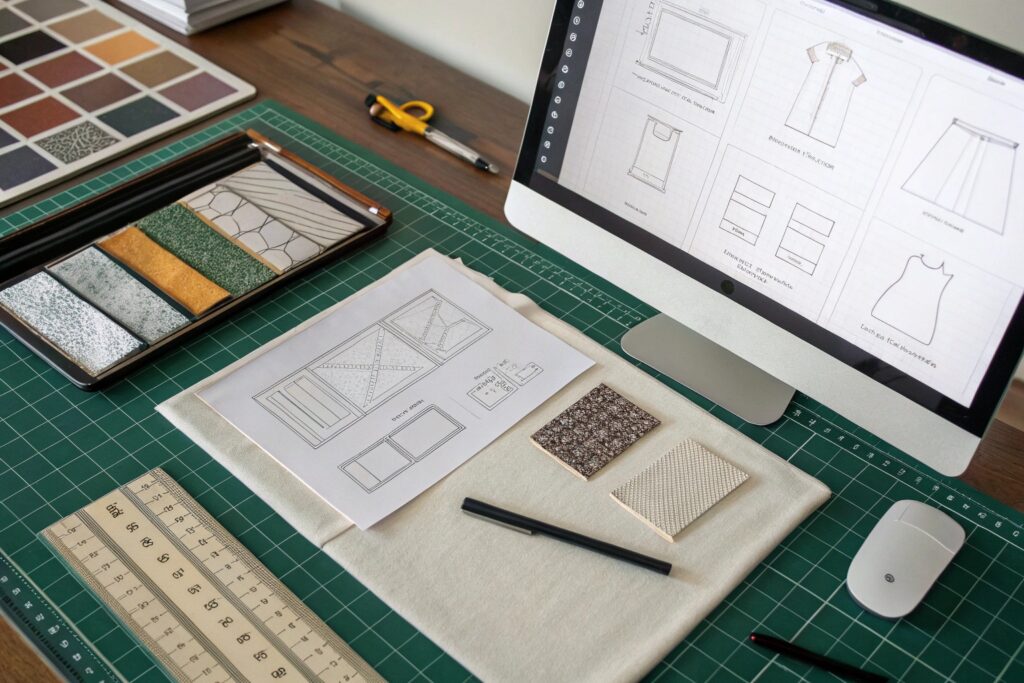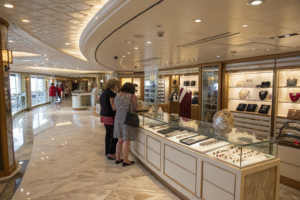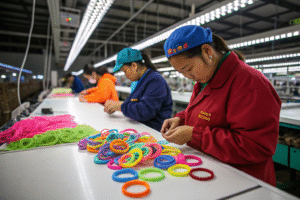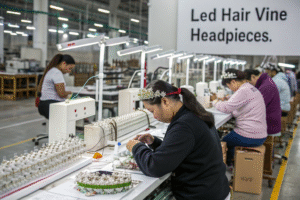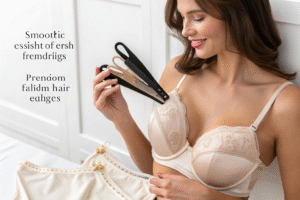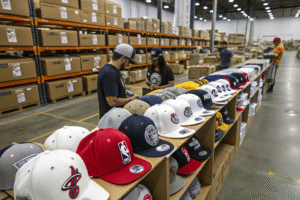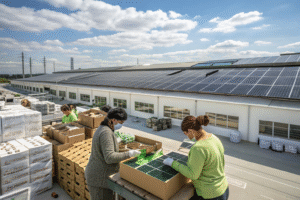You like their quote. Their catalog looks great. But can the factory actually turn your idea into a real hairpin product—on time, in style, and with the right quality?
To verify a hairpin manufacturer’s development capacity, you must evaluate their design services, sampling speed, R&D team size, past work portfolio, and factory visit readiness.
At HairAcc, we’ve helped hundreds of brands launch exclusive hairpin collections. Let’s break down how you can confidently assess your manufacturer’s ability to deliver.
What Design Services Should a Hairpin Factory Offer?
A reliable hairpin manufacturer is more than a production house—they must be your creative partner who can visualize and translate your ideas into sellable products.
The best hairpin factories offer end-to-end design services including 2D sketches, material recommendations, 3D modeling, pattern making, logo engraving, and packaging mockups.
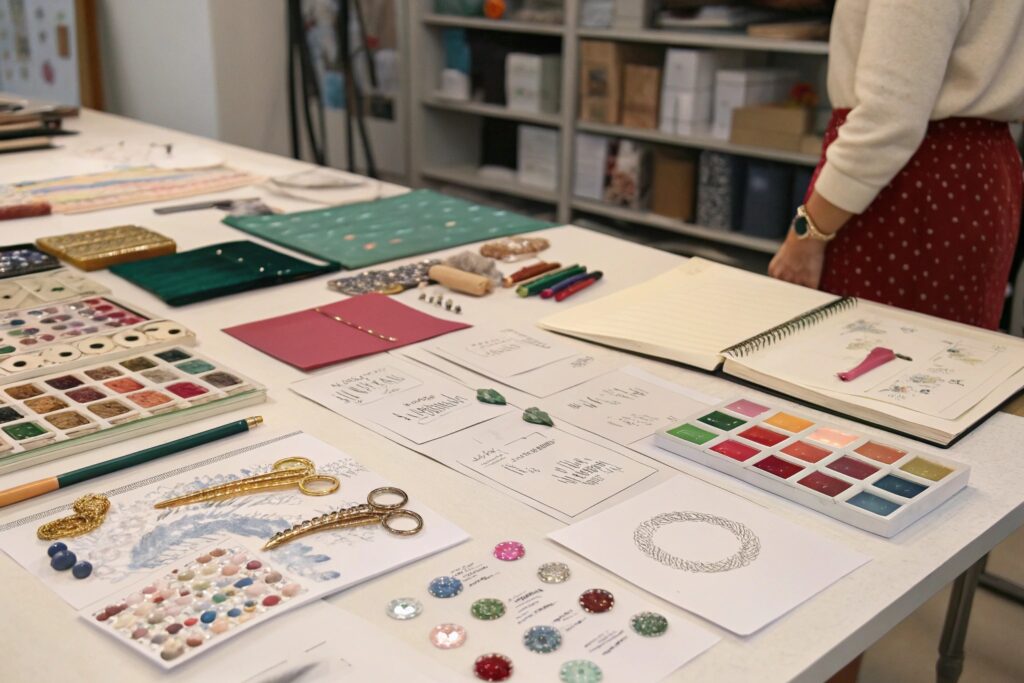
What design capabilities show real development strength?
Here are some common services and what they indicate about a manufacturer’s R&D readiness:
| Design Service | What It Shows |
|---|---|
| Concept Drawing | Ability to understand branding vision |
| CAD or 3D Rendering | Investment in design tech |
| Material Library Access | Updated trend knowledge & sourcing capability |
| Sample Customization | Flexible small-batch development |
| Mold-Making & Engraving | In-house tooling capacity |
Factories like HairAcc, with cooperative printing, dyeing, and embroidery partners, allow you to get samples made faster with greater styling freedom.
Why are integrated design services better than hiring outside designers?
- Reduces communication time
- Keeps production aligned with sampling
- Avoids design-to-sample quality gaps
- Cuts total cost when bundled with manufacturing
- Allows quicker style changes or corrections
We’ve helped brands develop entire product lines from mood boards to packaging in under 3 weeks—because our designers sit next to our mold engineers and sample makers.
How to Evaluate a Manufacturer’s Sampling Speed and Quality?
Sampling is where good ideas fail—or come to life. If a factory can’t make a decent sample quickly, that’s a red flag for future delays and poor communication.
To evaluate sampling speed and quality, request a test design, measure turnaround time, compare final sample vs. original brief, and check how many revisions they require.
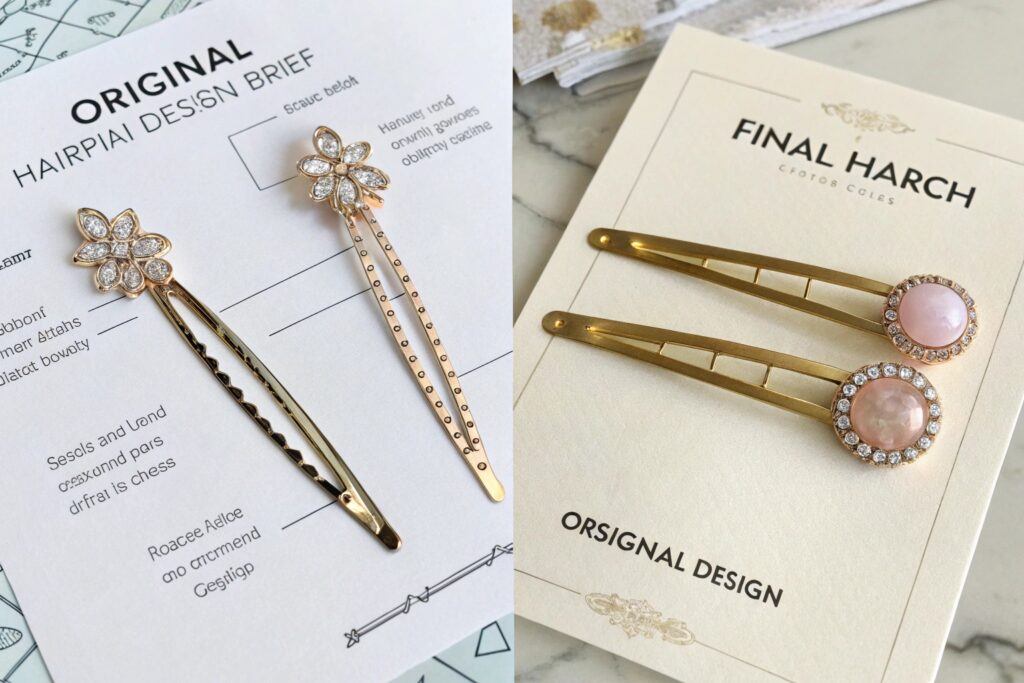
What does fast and accurate sampling tell you?
A factory’s ability to produce a functional, aesthetic prototype in under 10 days shows they have:
- Sufficient materials on hand
- Trained sample-making staff
- Standardized QC steps
- Clear communication lines between departments
| Sample Type | Avg. Lead Time | Ideal Outcome |
|---|---|---|
| Simple Metal Hairpin | 5–7 days | Matches spec, clean polish, firm clasp |
| Embellished Plastic Pin | 8–10 days | Secure glue, symmetrical decoration |
| Fabric Bow Hairpin | 7–9 days | Consistent folding, no frays |
What should you ask the factory before requesting samples?
- How many sample revisions are included in the quote?
- Can they ship videos of sampling process?
- Do they provide sample mold ownership or keep it in-house?
- What materials are in stock for fast sampling?
At HairAcc, we offer 48-hour rapid sampling for standard materials and shapes. Our clients regularly comment on how our first samples need zero adjustments.
Key Questions to Ask About Hairpin Product Development
Knowing what to ask before placing an order can save you thousands—and months of delay. Most issues come from assuming the factory can develop as fast as they produce.
Key questions about hairpin development include inquiries on R&D staffing, mold process control, design adjustment speed, material sourcing, and trend updates.
![]()
What questions separate great factories from average ones?
Here are essential questions you should ask, and what each answer reveals:
| Question | Why It Matters |
|---|---|
| How many staff work in your design team? | Indicates capacity for multiple projects |
| Can I co-own molds if I pay tooling fees? | Ensures IP protection |
| How fast can you switch materials mid-dev? | Shows adaptability and internal process clarity |
| How do you track seasonal trends? | Reveals their proactive design research |
| Do you do in-house testing on new designs? | Confirms quality control in the R&D phase |
Also ask to see past case studies:
- Before/after design sketches
- Packaging mockups
- Material board layouts
- Testing photos
Factories that can send these instantly are already organized for serious buyers.
How HairAcc handles these R&D questions?
We answer with full transparency—sharing videos, documents, and production plans. We also welcome new clients to co-develop 3–5 SKU sets with low MOQs for market testing.
Should You Visit the Factory to Confirm R&D Capacity?
Nothing confirms R&D strength better than an in-person visit. But if travel isn’t possible, there are still ways to “see” the factory’s process.
Visiting a hairpin factory helps you see real production lines, meet R&D teams, inspect sampling rooms, and understand whether they can scale your product vision.
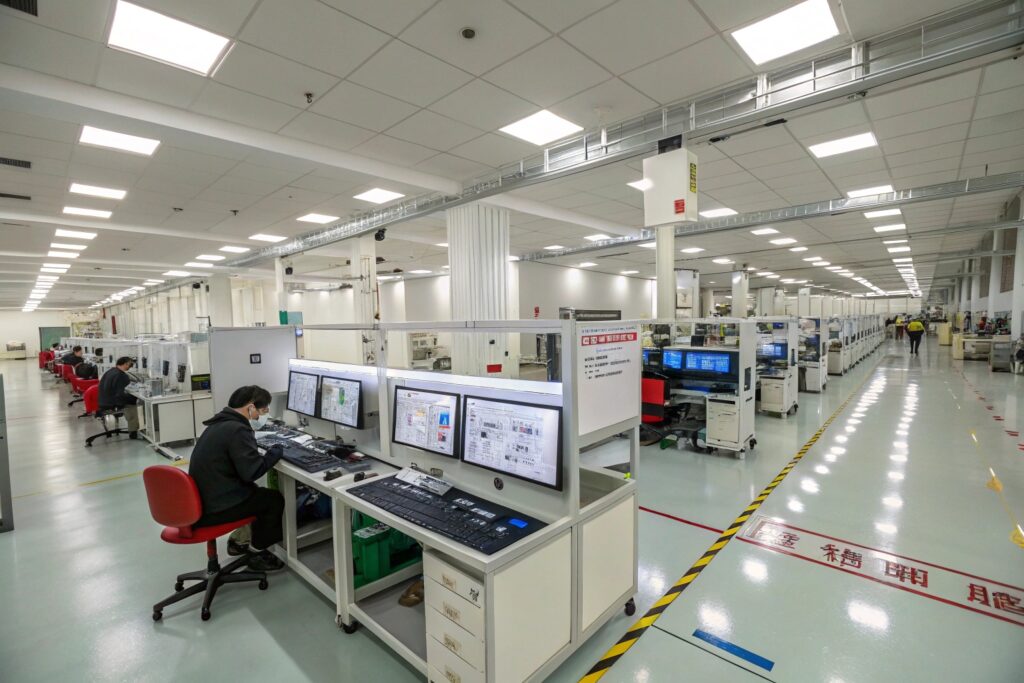
What to look for during a factory visit?
- Is there a dedicated development area (with sketches, CADs, samples)?
- Are sampling and production lines separate to avoid disruption?
- Do R&D staff work close to production managers for fast feedback?
- Is the sample warehouse organized by style and season?
At HairAcc, we offer real-time video tours to global clients. We show each team:
- Pattern maker
- Mold technician
- Trend analyst
- Sampling QC inspector
- Pack mockup specialist
What if you can’t visit?
- Ask for a video walk-through of their sample workshop
- Request a live call with the design head
- Get 3–5 sample photos from in-process development
- Ask for development timeline charts showing actual past cases
We often create 10-minute custom videos showing how we developed a product, from drawing to packaging—and send those to clients evaluating us.
Conclusion
When sourcing hairpins, don’t just look at price. Ask how your ideas will be brought to life. At HairAcc, we open up our design floor to clients because we believe good development is what builds trust—and long-term partnerships.
